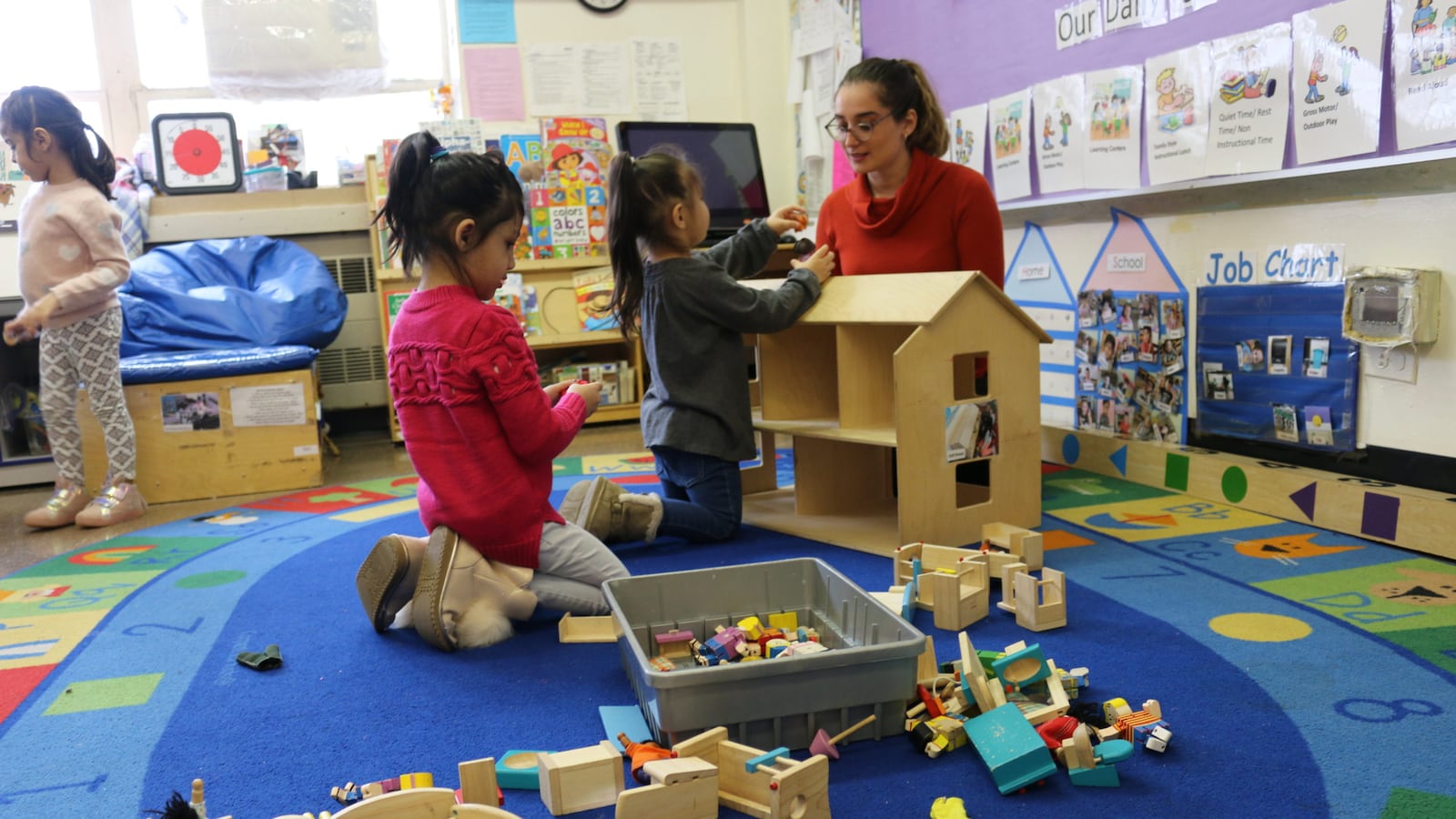The new coronavirus is squeezing employers across the country, leaving many worried about losing their paychecks.
But as school districts close in an effort to stop the virus’s spread, educators in the country’s largest districts will continue to be paid — though the picture for substitute teachers and non-district employees remains far murkier.
“School districts by and large are interested in limiting the adverse impact on their employees,” said Francisco Negrón, the chief legal officer of the National School Boards Association. And for now, most have the money to do so.
All 10 of the largest districts say they will continue to pay teachers and many other staffers while schools are closed, though they vary in whether they are continuing to teach students remotely.
Chicago Public Schools hasn’t immediately put in place plans for virtual instruction, but will continue paying all of its staff, officials say. That includes substitutes and seasonal workers, who will be paid based on the average number of hours they worked daily in the months before the closures.
In most of the country’s other big districts, though, there aren’t clear plans to continue paying daily substitutes — putting additional financial stress on those who may already have less stable incomes.
In Los Angeles, the superintendent has said that all staff will continue to get paid while schools are closed, which will be for at least two weeks.
“The idea is to hold everyone harmless during this time of crisis,” said Alex Orozco, the treasurer of UTLA, the local teachers union. But the union is still in talks with the district about pay for substitutes without regular assignments.
In New York City, teachers, paraprofessionals, paraprofessionals and long-term substitutes will continue to teach students remotely — and thus continue to get paid — as school buildings close for four weeks. But daily substitutes won’t be paid unless they work in-person at regional emergency child care centers set up across the city, the teachers union said.
That presents a big problem for Larissa Lowe Gonzalez, a substitute teacher who also runs a business that provides the sport fencing in after-school programs.
“I have two income streams, and they are both trashed completely,” said Gonzalez, whose teens attend city public schools. “I’m in the category of people who has less than $4,000 for an emergency. When that’s gone, we’re done.”
In Houston, local teachers union chief Zeph Capo said he expects all employees to be paid throughout any extended school closure — with the likely exception of daily substitutes. He’s encouraged them to file for unemployment benefits.
In Clark County, Nevada, the country’s fifth-largest district, the Las Vegas Review-Journal reported that the superintendent plans to pay contracted employees, but decisions have not been made about staff who are usually paid only when school is in session.
“Many [substitutes] will be facing the most difficult economic hardships of their lives,” Fernando Valenzuela, a substitute, told the Review-Journal.
A spokesperson for Palm Beach County in Florida said employees will continue to be paid, with the exception of substitutes, after-school counselors, and other workers with temporary assignments.
A number of other large school districts — including Denver, Memphis’ Shelby County, and Miami-Dade, Broward, and Hillsborough counties in Florida, have also said that all or most staff can continue to expect paychecks.
Some states, including California and Texas, have assured school districts that they can continue to expect regular revenue. But Negrón, of the school boards group said districts will see their finances strain if schools, for instance, want to try to make up for lost time during the summer.
It’s also possible that state and federal governments may chip in extra money as they try to blunt the economic and educational effects of the coronavirus. Congress is weighing a number of proposals right now, including one that earmarks $1.2 billion for schools.
“Hopefully that might offer some relief for school districts,” said Negrón.
But right now, some school workers remain in limbo.
For the last 12 years, Christina Scribner has worked for the school district in Fort Wayne, Indiana, as a bus driver. The district, one of the state’s largest, is closed at least through the middle of April, and that means bus drivers like Scribner can’t do their jobs. She doesn’t know yet if she will continue to get paid or even keep her job.
What would happen if she lost it?
“I would probably break down,” she said. “I cherish what I do. I’m the first person that those kids see in the morning; I’m the last person that they see in the evening that works for the school system.”
This article answers questions raised by our readers. Share your coronavirus-related questions, concerns, and ideas here, and keep up with our reporting on COVID-19 here.
Kalyn Belsha, Yana Kunichoff, and Alex Zimmerman contributed reporting.


